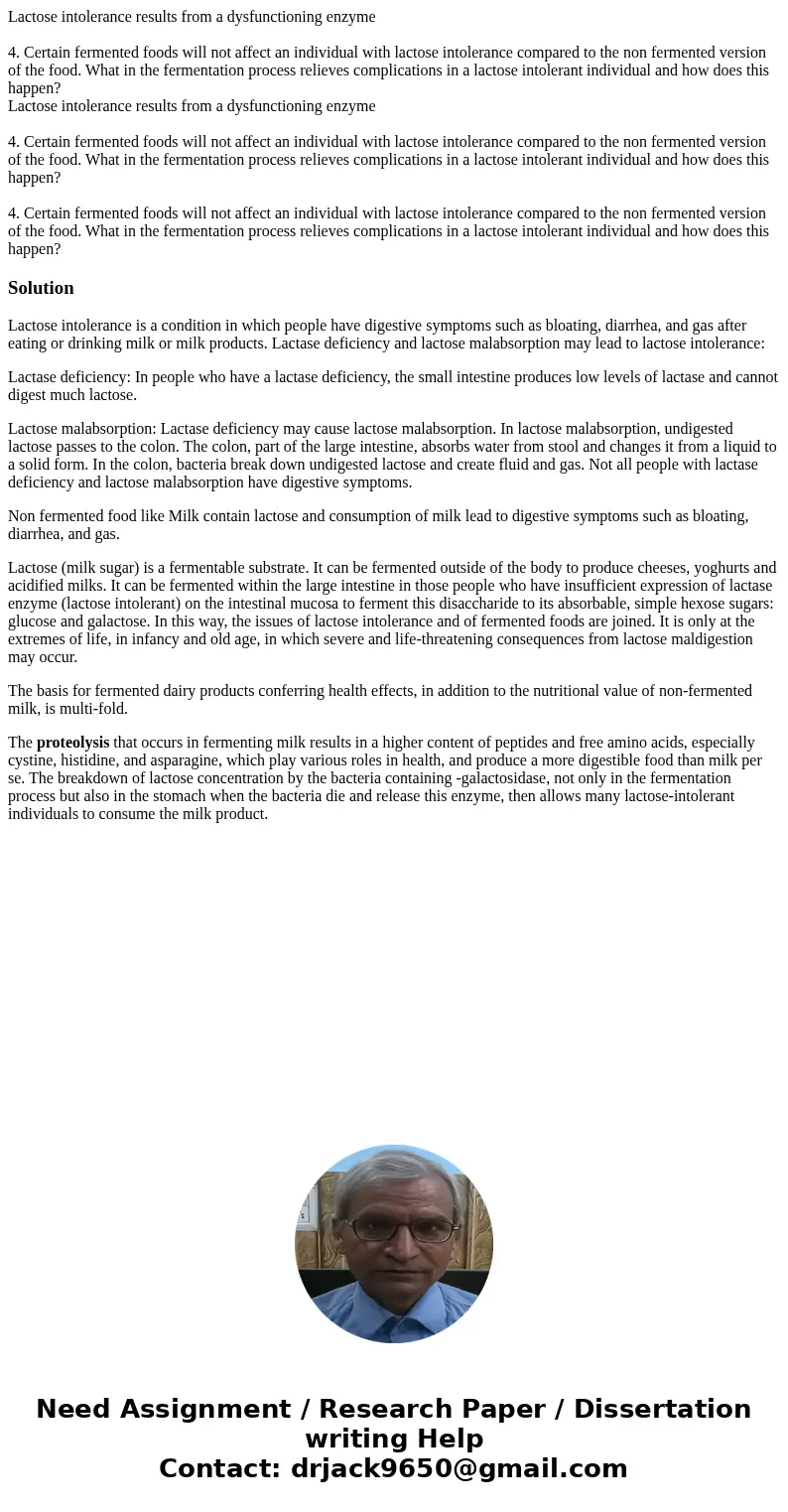Lactose intolerance results from a dysfunctioning enzyme 4 C
Solution
Lactose intolerance is a condition in which people have digestive symptoms such as bloating, diarrhea, and gas after eating or drinking milk or milk products. Lactase deficiency and lactose malabsorption may lead to lactose intolerance:
Lactase deficiency: In people who have a lactase deficiency, the small intestine produces low levels of lactase and cannot digest much lactose.
Lactose malabsorption: Lactase deficiency may cause lactose malabsorption. In lactose malabsorption, undigested lactose passes to the colon. The colon, part of the large intestine, absorbs water from stool and changes it from a liquid to a solid form. In the colon, bacteria break down undigested lactose and create fluid and gas. Not all people with lactase deficiency and lactose malabsorption have digestive symptoms.
Non fermented food like Milk contain lactose and consumption of milk lead to digestive symptoms such as bloating, diarrhea, and gas.
Lactose (milk sugar) is a fermentable substrate. It can be fermented outside of the body to produce cheeses, yoghurts and acidified milks. It can be fermented within the large intestine in those people who have insufficient expression of lactase enzyme (lactose intolerant) on the intestinal mucosa to ferment this disaccharide to its absorbable, simple hexose sugars: glucose and galactose. In this way, the issues of lactose intolerance and of fermented foods are joined. It is only at the extremes of life, in infancy and old age, in which severe and life-threatening consequences from lactose maldigestion may occur.
The basis for fermented dairy products conferring health effects, in addition to the nutritional value of non-fermented milk, is multi-fold.
The proteolysis that occurs in fermenting milk results in a higher content of peptides and free amino acids, especially cystine, histidine, and asparagine, which play various roles in health, and produce a more digestible food than milk per se. The breakdown of lactose concentration by the bacteria containing -galactosidase, not only in the fermentation process but also in the stomach when the bacteria die and release this enzyme, then allows many lactose-intolerant individuals to consume the milk product.

 Homework Sourse
Homework Sourse